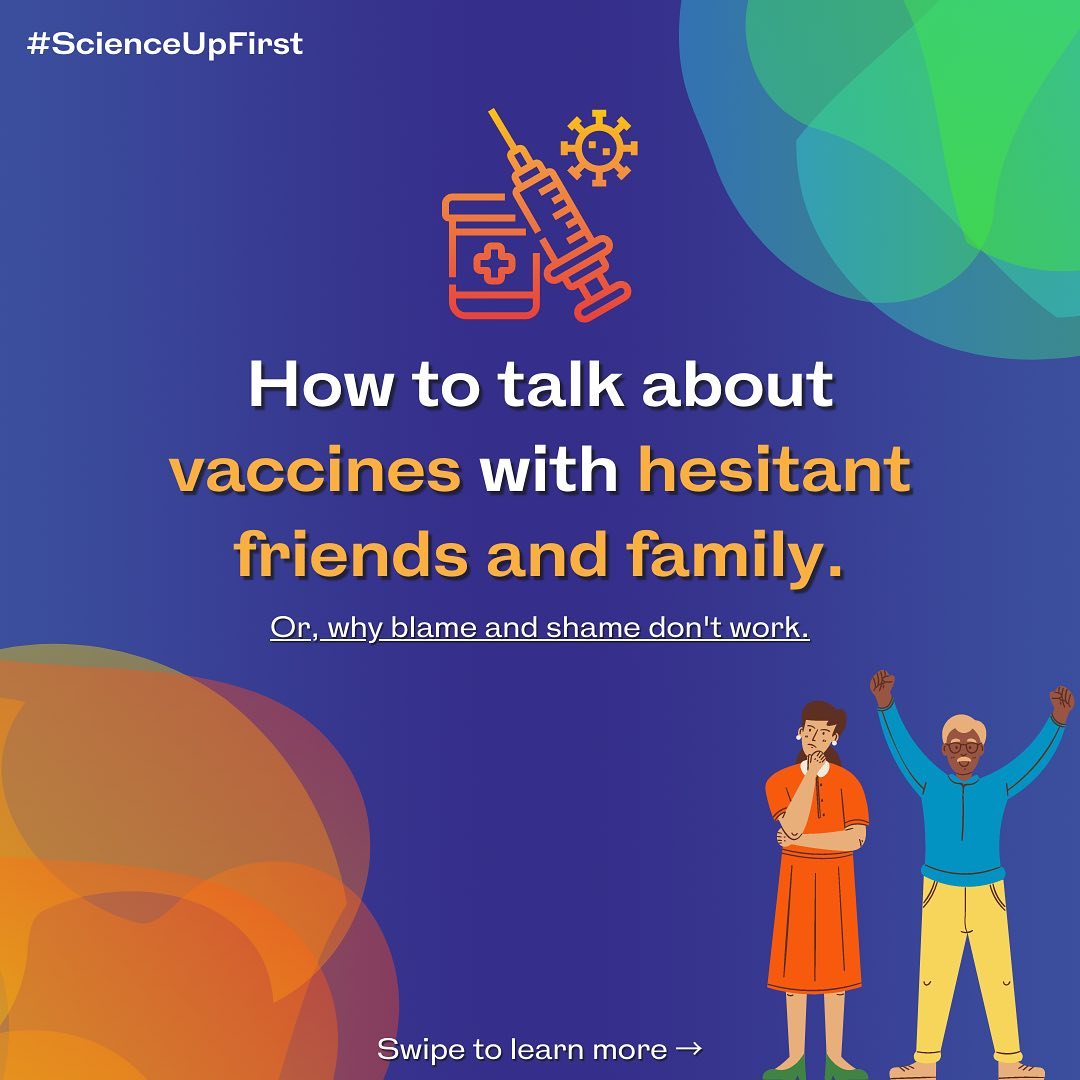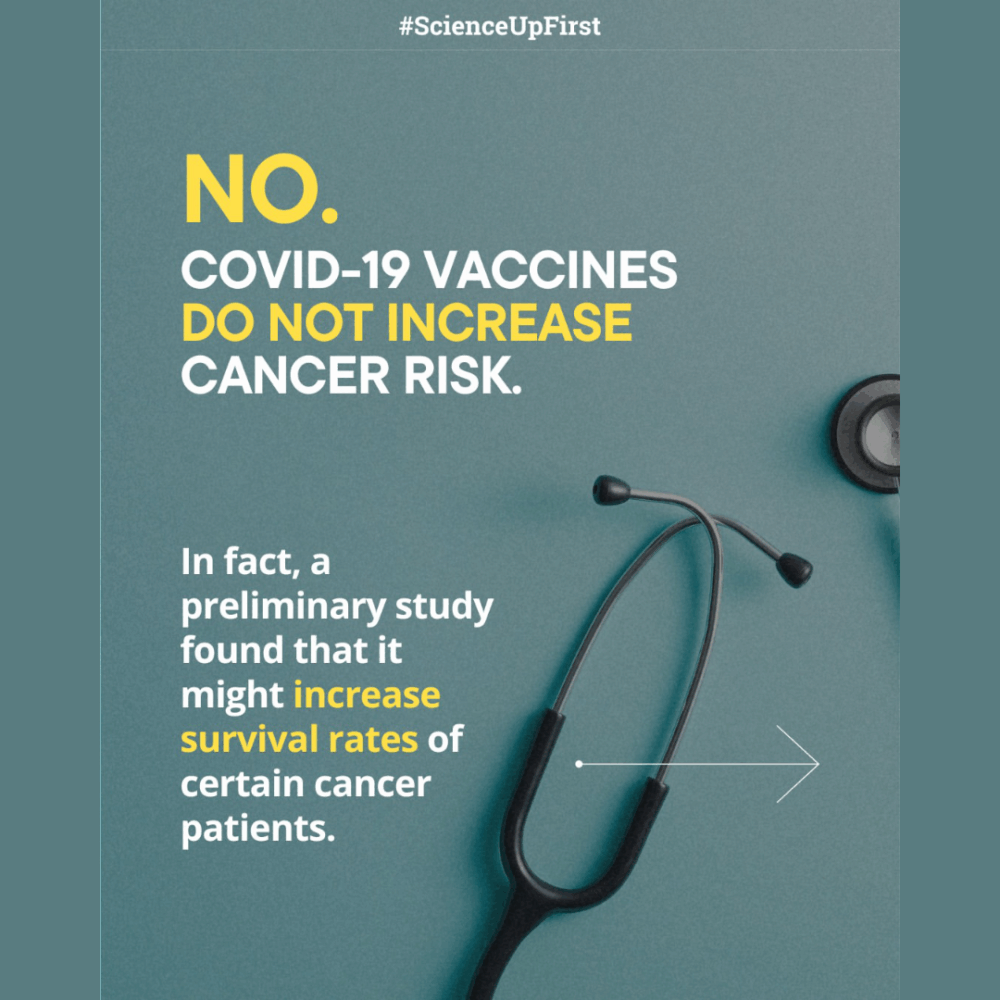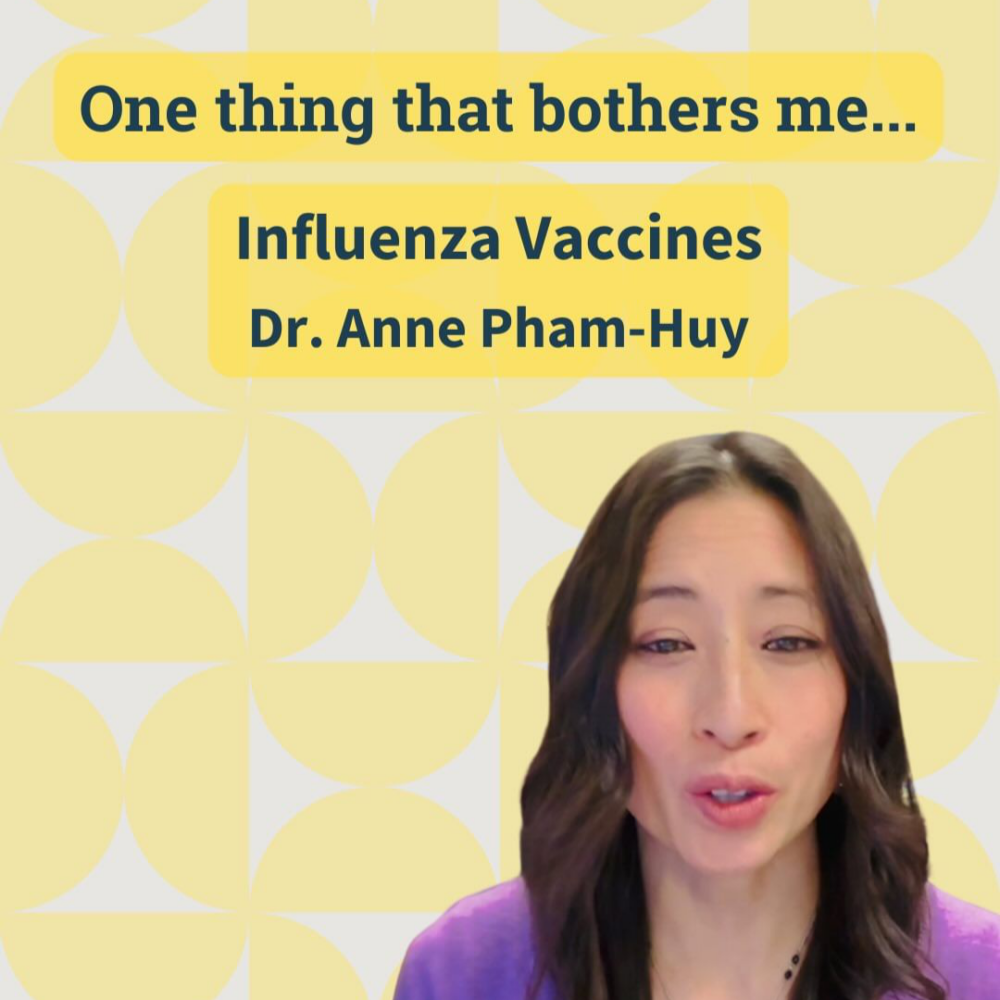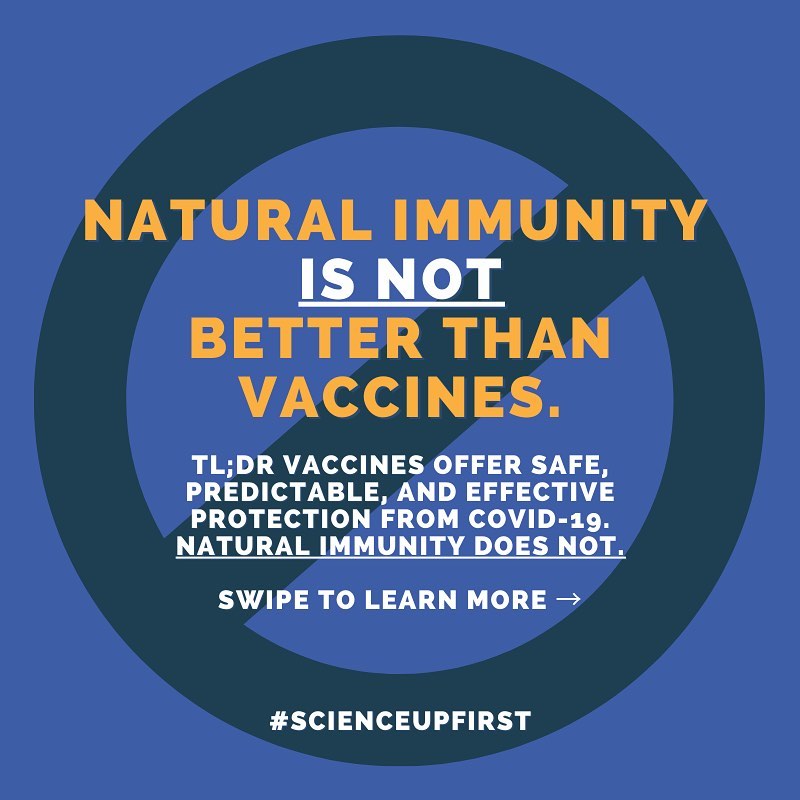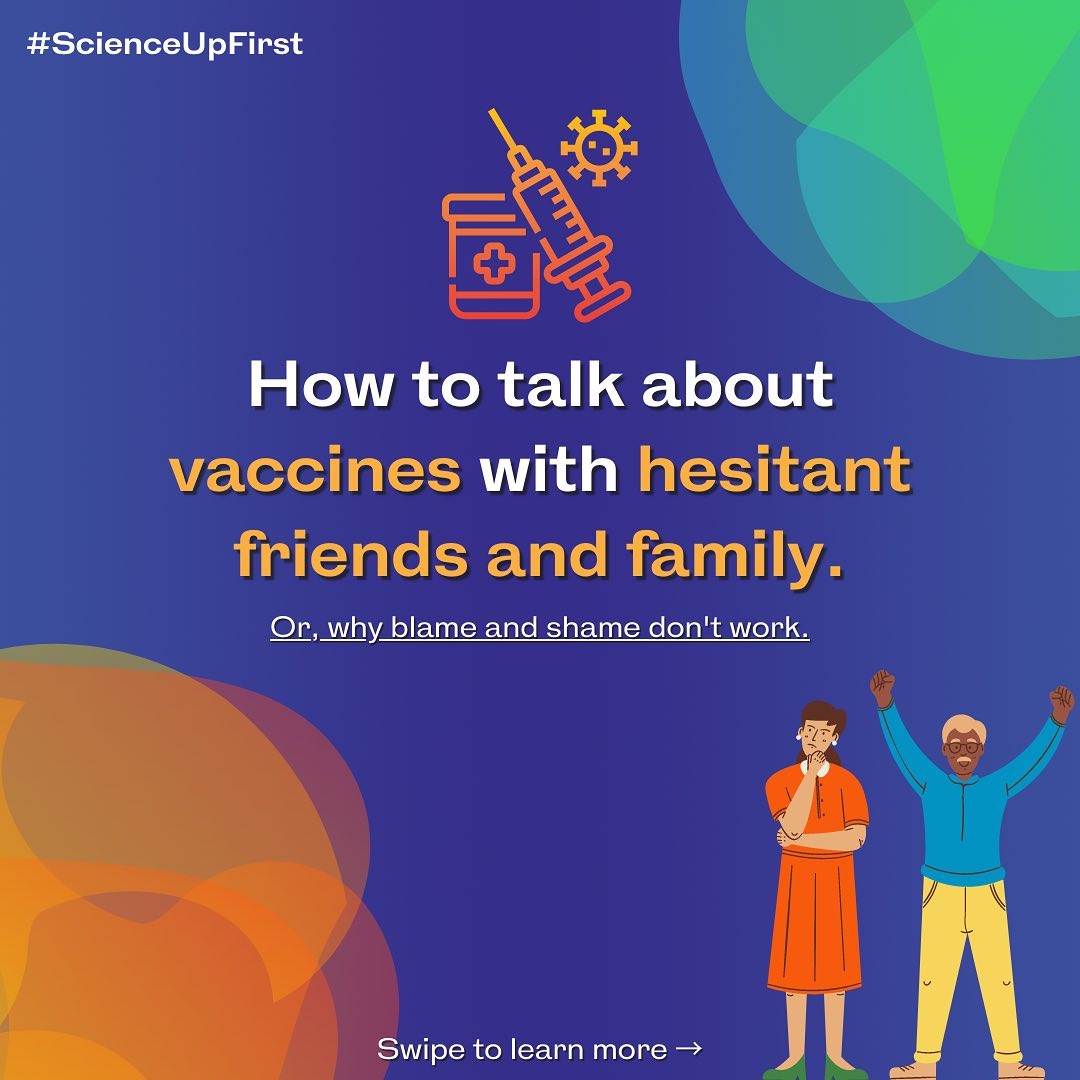
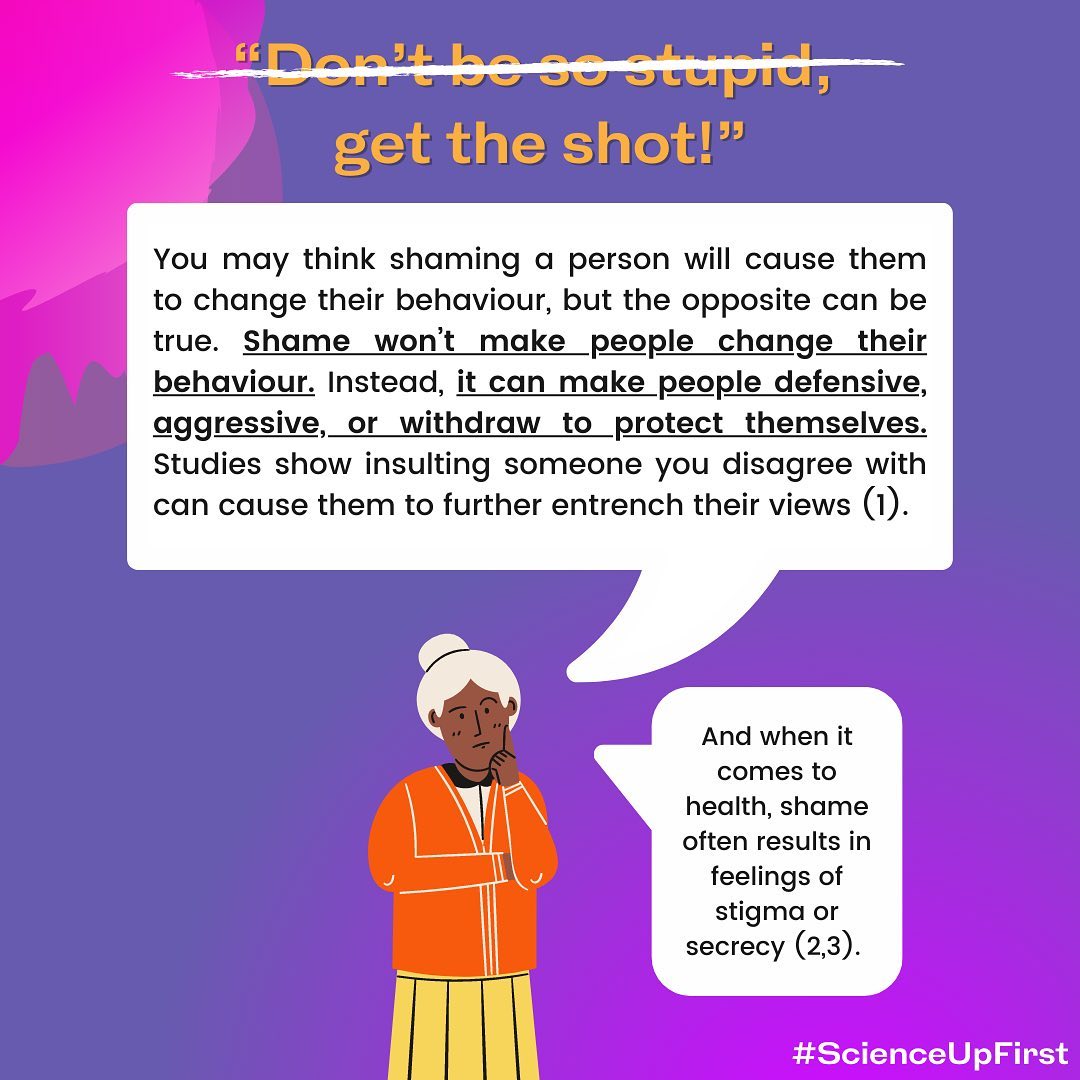
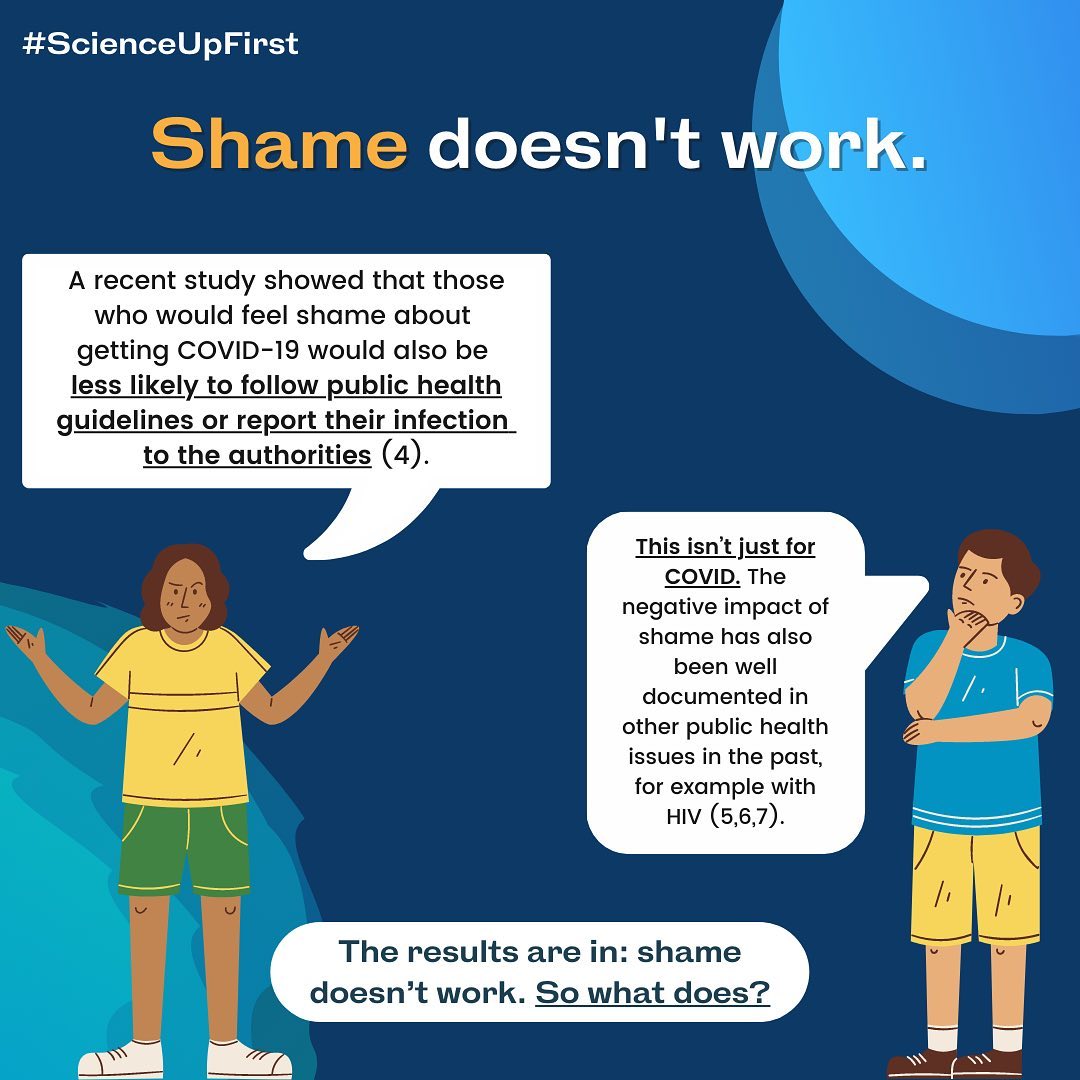
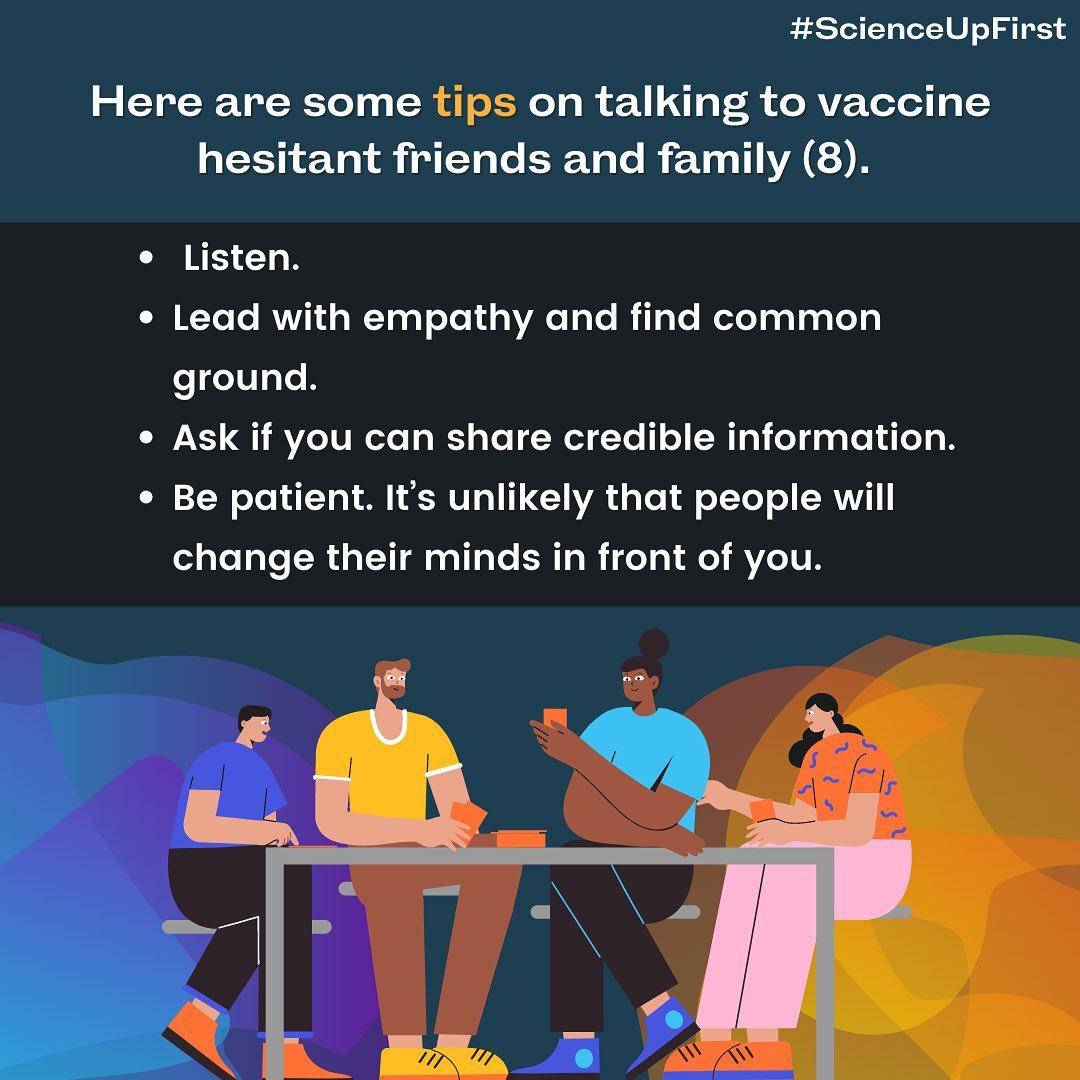
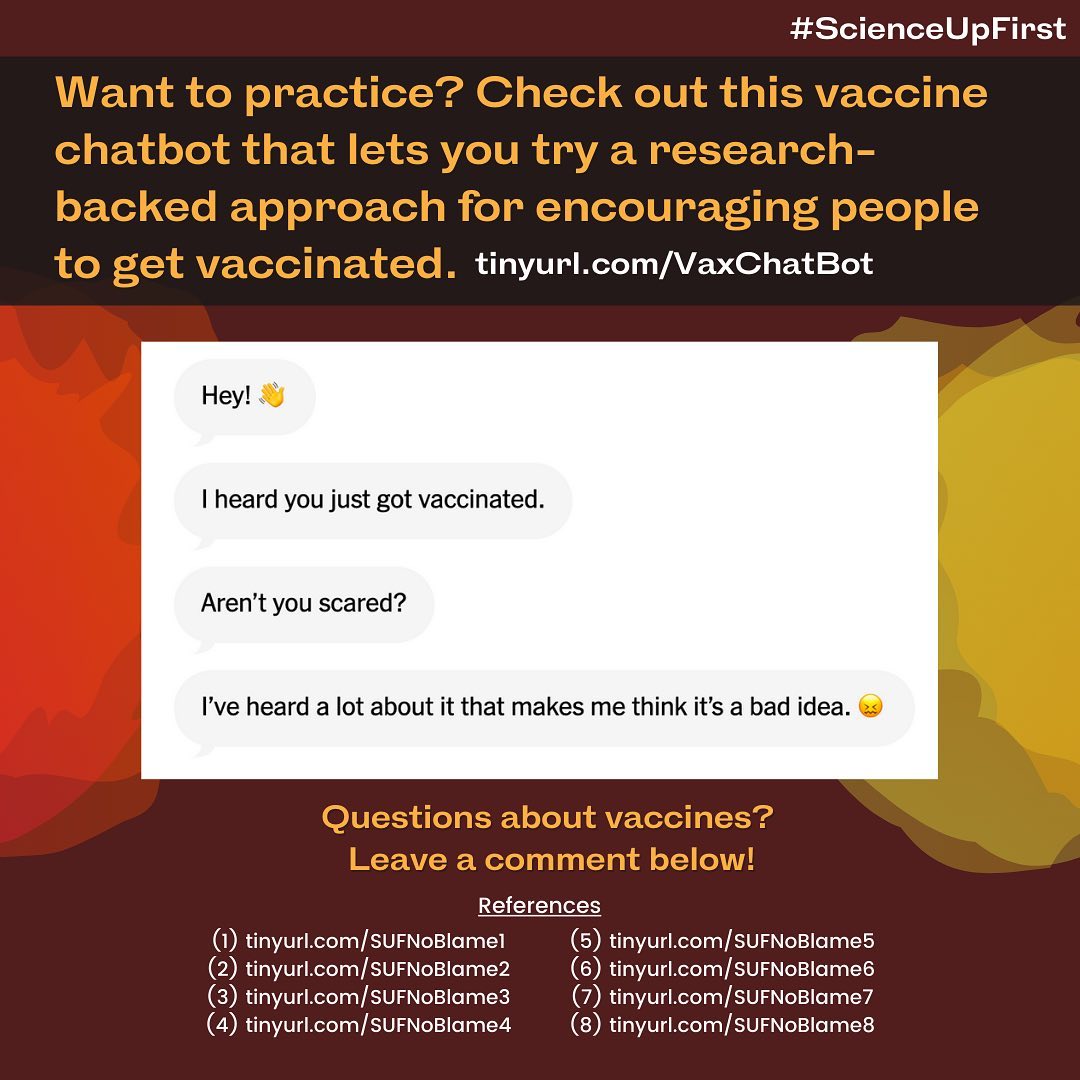
Talking with vaccine hesitant friends and family can be hard. Like, REALLY hard.
No matter how tempting it may be, snapping at people or shaming them for their choices is not the solution. Shaming people when it comes to health can actually make them LESS likely to follow public health guidelines. It can also turn conversations into fights.
Read through this post for some tips on how to have open and compassionate conversations with vaccine hesitant friends and family (adapted from Tim Caulfield). ✅
Want to practice? Check out the last slide for a link to a chat bot by the New York Times that walks you through research-backed ways to encourage a friend to get vaccinated! ⚕️
Share our original Tweet!
Talking with vaccine hesitant friends and family can be hard. Like, REALLY hard.
Check out this thread for some tips on how to have open and compassionate conversations with vaccine hesitant friends and family. #ScienceUpFirst
[1/5] pic.twitter.com/s6vYsHan8n
— ScienceUpFirst | LaScienceD’abord (@ScienceUpFirst) September 8, 2021
View our original Instagram Post!
View this post on Instagram
- Negative persuasion via personal insult
- cmaj news
- Frontiers in Psychology: COVID-19 Psychological Implications: The Role of Shame and Guilt
- Compliance and Self-Reporting During the COVID-19 Pandemic: A Cross-Cultural Study of Trust and Self-Conscious Emotions in the United States, Italy, and South Korea
- Shame and HIV: Strategies for addressing the negative impact shame has on public health and diagnosis and treatment of HIV
- The Obesity Pandemic—Whose Responsibility? No Blame, No Shame, Not More of the Same
- It’s a Shame! Stigma Against Fetal Alcohol Spectrum Disorder: Examining the Ethical Implications for Public Health Practices and Policies
- Talking to a vaccine-hesitant family member or friend? Those conversations tough but so important. (Tweet thread)
- Vax Chat Bot

